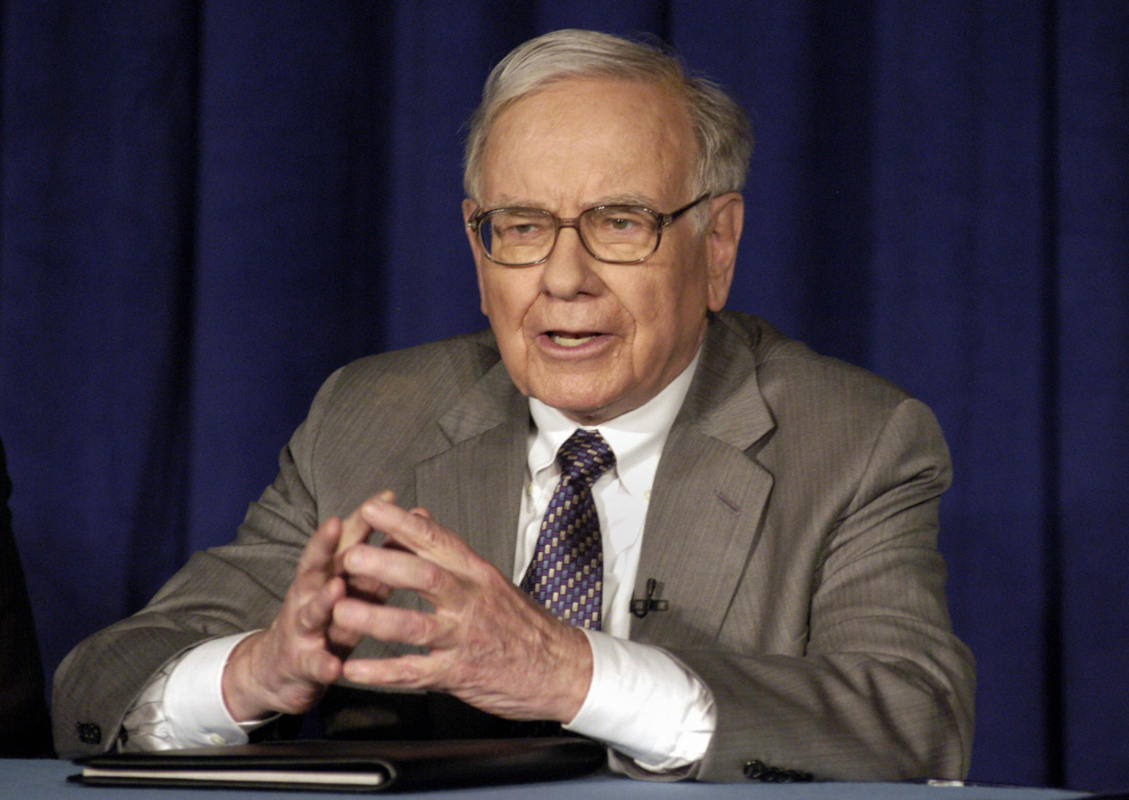The market feels a little unhinged at this point.
AI fever continues to draw in first-time investors by the millions, with bubble chatter everywhere, as some stocks rally one week and plummet the next. In many ways, volatility has become the backdrop.
In moments like this, it’s perhaps ideal for investors to look for an anchor, and maybe no one fits that description better than the Oracle of Omaha, Warren Buffett.
Warren Buffett, through his investing behemoth in Berkshire Hathaway, has spent decades turning panic into patience, which ultimately culminated in performance.
Over his long tenure, he’s effectively compounded shareholder wealth at roughly 20% a year, a pace that leaves the S&P 500 in the rearview.
“Be fearful when others are greedy and greedy when others are fearful,” Buffett likes to say. That may seem simple until you test it out in a market that continues to swing hard.
That’s why a telling shift out of Bank of America is getting attention.
The bank isn’t waving a flag or naming names this time, but its tone has changed, and the subtext will probably sound a lot familiar to Buffett’s fans.

NICHOLAS ROBERTS/Getty Images
Bank of America steers investors back to value stocks, in true Buffet fashion
In a market that’s run red hot on AI and momentum trades, Bank of America urges investors to cool it, effectively taking a page from Warren Buffett’s playbook.
In its latest Small/Mid Cap Factors report, the nation’s second-largest lender advised investors to focus on value stocks, as the market is showing signs of froth.
More Warren Buffett:
- Warren Buffett lines up Berkshire’s biggest deal in years
- Warren Buffett’s retirement creates a buying opportunity
- Berkshire Hathaway reveals housing market changes, trends
The bank said small-cap value strategies lagged in Q3 but are likely to rebound on the back of “multiple signals” that the backdrop is moving in the right direction.
“The U.S. Regime Indicator recently moved to Recovery, the phase during which Value was the most consistent leader within small caps,” analysts wrote. They added: “Value has recently begun to outperform in mid caps,” even as growth stocks continue pushing higher.
Related: Jamie Dimon drops surprising take on AI stocks
According to BofA, small-cap gains haven’t really come from the typical high-quality growth names, which lagged in September and in Q3. This is why the bank feels the rally in weaker stocks is likely running out of steam.
That’s classic Buffett territory, where the focus is on durable businesses that come with a sensible price tag, when everyone else is chasing heat.
What are value stocks?
Value stocks are basically shares that trade hands below what their fundamentals imply. A quick gauge for that is usually the price-to-earnings (P/E) ratio, which tells you how many times earnings a particular stock is trading for.
Think of value stocks like buying a great house on a quiet street at a discount, which means the structure (cash flow, assets) is solid, but the price tag hasn’t caught up yet.
Three examples of value stocks today (p/e vs. sector average):
- JPMorgan: 15.3x vs Financials 19.1x.
- Pfizer: 7.2x vs Health Care 23.1x.
- Verizon: 9.4x vs Comm Services 20.5x.
Warren Buffett’s playbook shows why value stocks still reward patience and discipline
Warren Buffett didn’t invent value investing, but he did turn it into an art form.
He took Benjamin Graham’s idea of buying stocks below intrinsic value and effectively refined it with a fresh twist.
Related: Veteran trader who bought Nvidia at $13 resets stock price target
Buffett’s mantra was for investors to pay a fair price for a great business with a moat, honest management, and sustainable power. His timeless reminder still cuts through the noise: “Price is what you pay; value is what you get.”
Buffet’s greatest hits show the pattern:
- Coca-Cola: Loaded up heavily in 1988-89 following a stumble; a global brand with immense pricing power, backed by decades of consistent dividend payments.
- American Express: First circled after the 1960s “salad oil” panic, and later built it into a potent core holding: a premium brand with network effects, along with disciplined underwriting.
- Apple: Not “old-school value” on the surface, but still classic Buffett with a sticky ecosystem, massive buybacks, and loyal fan base.
Buffett’s playbook basically boils down to discipline and patience. He favors quality over cheapness, paying fair prices for businesses with durable and strong moats, along with steady cash flow.
He thinks as an owner, but stays within his circle of competence, avoiding what he can’t explain simply. However, his real edge is timing and acting boldly when others are nervous.
Related: Former Intel CEO drops curt 2-word verdict on AI
#Bank #America #quietly #echoes #Warren #Buffetts #favorite #strategy